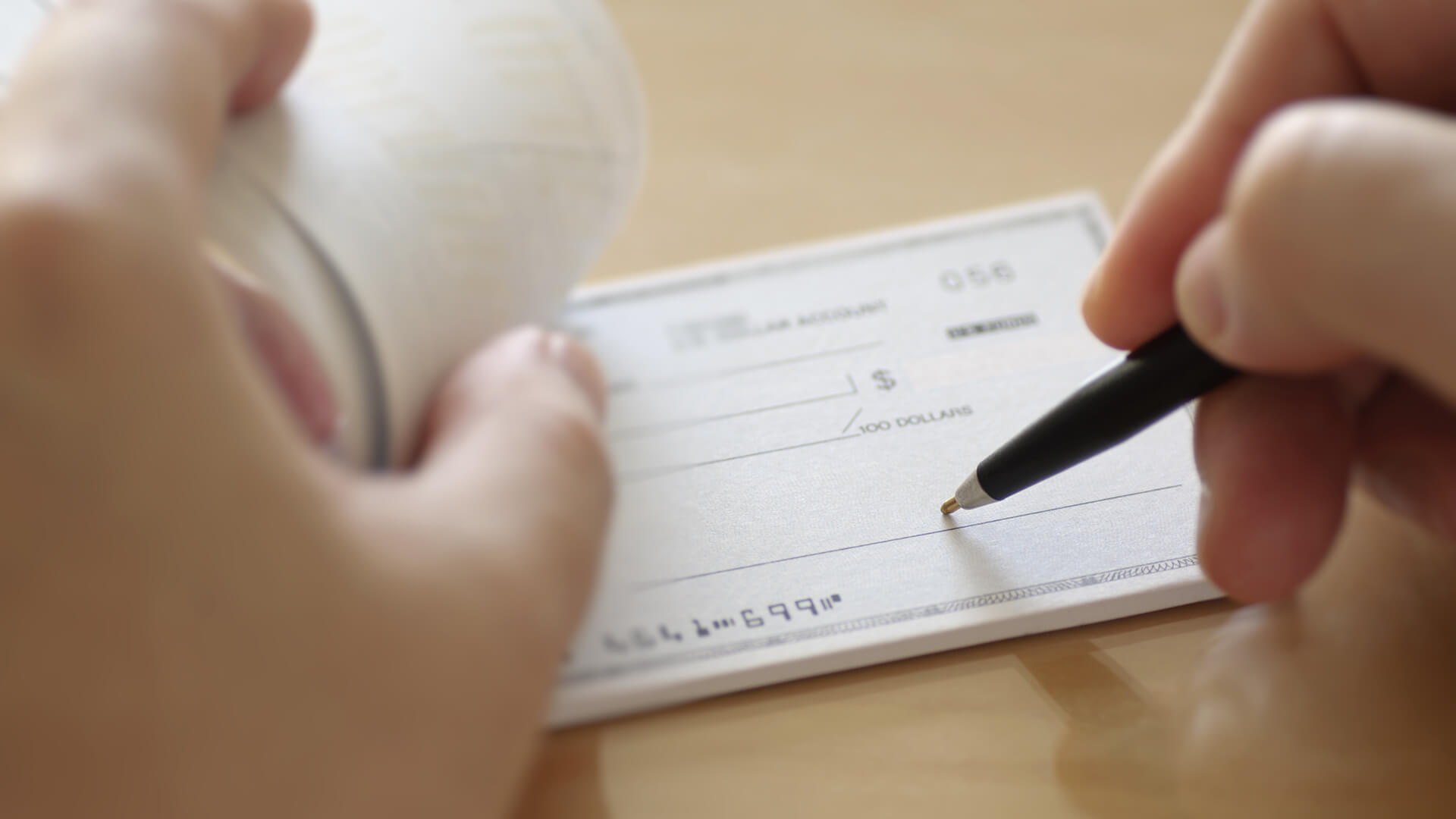Explain the difference between the different types of checks
Bank/cheque account
Icatnews / Shutterstock.com
Debit cards and mobile payment options may be all the rage these days, but good old-fashioned checks still reign supreme in some corners of the banking world. And there’s a surprisingly wide range of options. You have your standard bank checks, travelers checks, certified checks and nearly a dozen other types.
See: GOBankingRates’ Best Online Banks of 2022
Read more: A third of people have $100 or less in their checking accounts, survey finds — Here’s how many experts say you should actually have
GOBankingRates spoke to Jessica Chase, Lending and Finance Expert at Premier Title Loans, to learn more about all types of checks (there are 14 categories) and their respective purposes. We also briefly explored what the future of checks could be in an era increasingly devoted to the paperless convenience of digital.
1. Bank checks: The bank check is the simplest form of a check and what we call the traditional check. They are subscribed and guaranteed on the bank’s own funds and are signed by their cashier. The person signing the check can make it payable to a third party and withdraw the funds in their own name.
Check Out: Learn About GOBankingRates’ Best Checking Accounts of 2022
2. pay checks: These checks are salary checks given by an employer to his employee for services rendered. They are usually drawn from a company’s current account.
3. Electronic Checks or Electronic Checks: E-cheques are the digital versions of a simple bank cheque. They go through an automated clearing house to transfer funds from one account to another.
4. Travelers Checks: This check is always for a specific amount and serves as an alternative to hard cash. As the name suggests, travelers use it to purchase goods when not carrying cash. They can be exchanged for local currency at most banks.
GOBankingRates’ Top Picks: The Best Regional Banks of 2022
5. Personal checks: Personal checks are issued from the account holder’s own funds. The account holder fills in the payee information and the check is not authorized until it is presented to the bank.
6. Mandates: Money orders are very similar to regular checks, but the difference is that they are guaranteed by the bank and cannot be bounced.
7. Certified checks: A certified check is a type of check where the bank guarantees that the amount issued is available in the account of the issuer, hence the “certified”.
8. Cashier’s checks: Cashier’s checks are also backed by the bank’s equity, but the difference is that they are much more secure and banks charge higher fees for them.
9. Business checks: Business checks are like personal checks, but for businesses and organizations. They are issued to a company’s account and are used to pay their suppliers, vendors, etc.
And more: the best national banks of 2022
ten. Company checks: A company check is a check drawn on a company’s checking account. For example, a paycheck is also a business check.
11. Government checks: Any check issued by the government to you is considered a government check. They generally cover grants, subsidies and tax refunds.
12. Tax refund checks: This is exactly what the title suggests. Taxpayers who receive a refund on their tax payments at the end of the tax year. The check they receive from the government is called a tax refund check.
13. Insurance checks: When a person files a claim with their insurance company for damage or coverage, if approved, they receive a check for the dollar value of their claim. This check is called an insurance check.
14. Out of State Checks: An out-of-state check is a check that was issued in a different state from that in which it is deposited or cashed.
Important: 25 things you should never do with your money
So many controls today, but will it always be so?
With growing consumer demand for seamless technology, it’s worth asking: will this diverse assortment of checks remain relevant or will it be phased out? Most likely checks will disappear over time, but we’re definitely not there yet.
“Banks will continue with the verification system as it is for the next decade because of its popularity with seniors and organizations,” Chase said. “With fintech introducing new payment systems, the banking industry will be revolutionized. But banks are still hesitant to adopt these technologies because they tend to avoid risk. But when they do, there is a good chance that the current control system will be overthrown or replaced entirely.
More from GOBankingRates


Comments are closed.